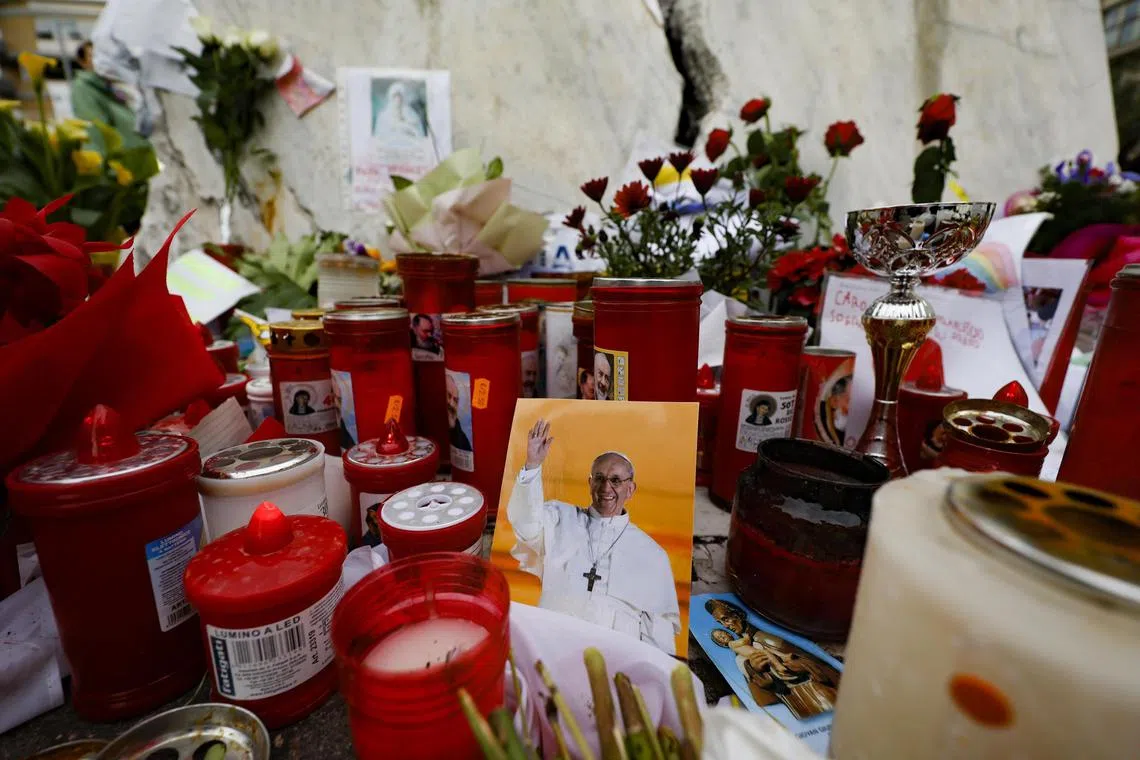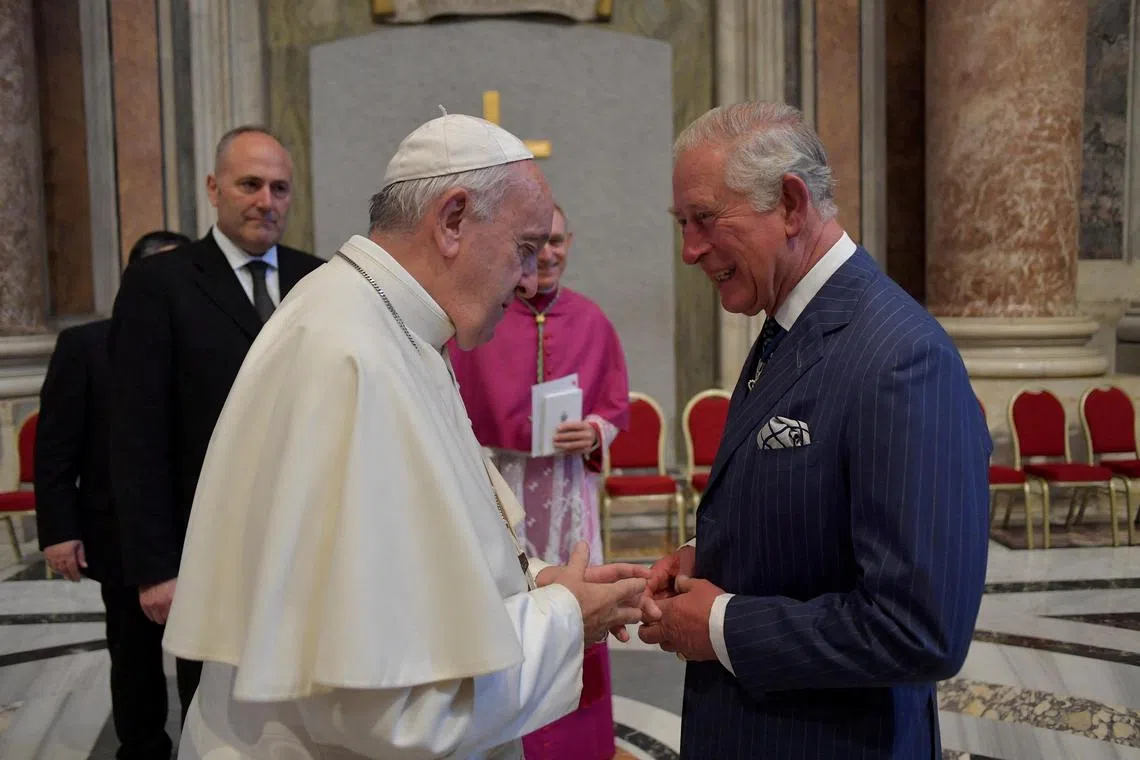‘Improving’ Pope did not need oxygen mask overnight, says Vatican
Sign up now: Get ST's newsletters delivered to your inbox

Tributes to Pope Francis outside Rome's Gemelli hospital, where he is being treated.
PHOTO: EPA-EFE
VATICAN CITY – Pope Francis, in hospital for more than a month with pneumonia, did not need to use an oxygen mask overnight as the 88-year-old’s condition gradually improves, the Vatican said on March 18.
Doctors at Rome’s Gemelli hospital have said the pontiff is now stable, after a critical period marked by breathing crises that raised fears for his life.
“There have been some slight improvements” in his condition and he “did not need to use” an oxygen mask overnight, the Vatican said in an evening briefing.
Instead, he used a cannula – a plastic tube tucked into his nostrils that delivers high-flow oxygen.
But the Vatican cautioned that this did not mean he will no longer need the mask, which he has worn overnight for most of his stay.
The Pope, who had part of one lung removed as a young man and is prone to respiratory illnesses, is “stable” but his “clinical picture remains complex”, the Vatican said.
The next medical bulletin is expected on the afternoon of March 19.
The Vatican has yet to say when the pontiff might leave hospital, and declined to comment on March 18 on whether a planned visit by Britain’s King Charles III
King Charles, head of the Church of England, is scheduled to meet his Roman Catholic counterpart at the Vatican on April 8.
But while the visit was confirmed by Buckingham Palace on March 18, the Vatican press office said it was standard practice to give information on such events only “a few days” ahead of time.
In hospital, the Pope has alternated rest with prayer, as well as bits of work when he can.
That has included penning a letter to Italy’s leading newspaper, published on March 18, in which he called for an end to war and urged the media to “serve the truth”.

A 2019 photo showing Pope Francis meeting Britain’s then Prince Charles at the Vatican.
PHOTO: REUTERS
Emphasising the need for responsible journalism in a time of conflict, the head of the Catholic Church said the media must “feel the full importance of words”.
“They are never just words: They are facts that build human environments. They can connect or divide, serve the truth or use it,” the Pope wrote to the Corriere della Sera, in a letter dated March 14.
“We must disarm words, to disarm minds and disarm the earth. There is a great need for reflection, for calmness, for a sense of complexity.”
‘Human fragility’
“While war only devastates communities and the environment, without offering solutions to conflicts, diplomacy and international organisations need new life and credibility,” he wrote.
The letter was written in response to a note sent by Corriere’s director Luciano Fontana to the Pope, who has been in hospital since Feb 14.
The pontiff, who has regularly called for an end to conflicts around the world since his election in 2013, noted that “in this moment of illness... war appears even more absurd”.
“Human fragility, in fact, has the power to make us more clear about what lasts and what passes, what makes us live and what kills,” he wrote.
Peace, the Argentine pontiff said, “requires commitment, work, silence, words”.
Despite his improvement, speculation abounds that he could step down because of his fragility, following in the footsteps of his predecessor, Benedict XVI.

The Vatican on March 16 released the first image of Pope Francis in hospital since he began treatment for double pneumonia.
PHOTO: REUTERS
On March 17, Vatican Secretary of State Pietro Parolin told reporters that he had noted an improvement in the Pope’s health during a visit last week.
But asked whether the conversation had turned to the Pope’s resignation, Cardinal Parolin replied: “No, no, no, absolutely not.”
Catholics praying for the pontiff’s speedy recovery have been leaving flowers, candles and notes for him outside the hospital.
One of them, Ms Elena Pampaloni, from Tuscany in central Italy, said she had “a very beautiful bond with Pope Francis”.
“I was at (St Peter’s) Square when he was elected, and I saw the white smoke,” she told AFP, referring to the sign that tells Catholics they have a new pope.
“Knowing that he is here at the Gemelli, and in pain, makes me and other pilgrims suffer. I hope he gets better soon,” she said. AFP


